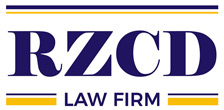Criminal Law
In Canada, criminal law falls under the exclusive legislative jurisdiction of the federal government. Throughout the country, and in all Canadian territories, criminal prosecutions are brought in the name of the Queen in Right of Canada. If an offence that is listed under the Criminal Code or another federal statute is committed, criminal prosecution may occur.
Generally speaking, offences fall into one of two categories. Minor offences (e.g. causing a disturbance, vehicle theft), are known as ‘summary’ convictions and the person prosecuted will either be sentenced to imprisonment for up to 6 months and/or a fine of up to $5000.
Other illegal offences incur stronger punishment. These offenses break down into 3 categories: indictable-only offences (e.g. murder) can only be tried by a provincial higher court with a jury (unless the accused and the Attorney General agree on trial solely by a higher court judge). Other offenses such as theft or fraud to the value of $5000 are offenses of absolute jurisdiction and are tried without a jury trial by a judge in the province’s court. The third category of crimes allow the accused to choose whether they are to be tried by a provincial court judge, or the judge of a province’s high court with or without a jury.
If you have any concerns or queries regarding any aspects of Criminal Law please don’t hesitate to contact the team at RZCD.
